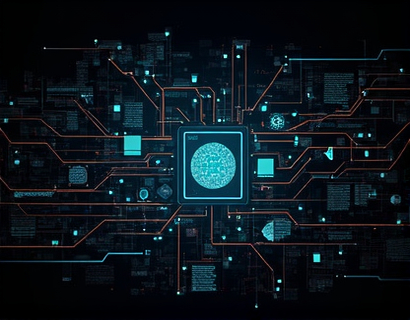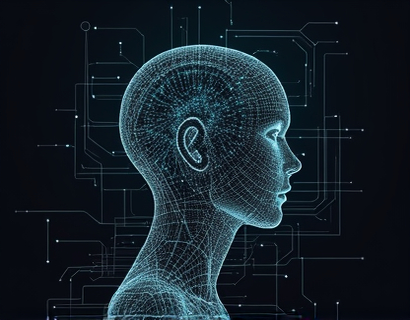AI-Driven Nanotech Learning: Transforming Education and Professional Development
The integration of Artificial Intelligence (AI) in the field of nanotechnology education marks a significant milestone in making complex scientific concepts accessible and engaging for learners of all ages. This article delves into the specialized insights provided by an AI-powered educational platform, designed to deliver verified and tailored information on nanotechnology, ensuring a safe and enriching experience for educators, professionals, and curious minds alike.
Understanding the Role of AI in Nanotechnology Education
AI technology has revolutionized various sectors, and education is no exception. In the context of nanotechnology, an inherently complex and specialized field, AI serves as a powerful tool to demystify intricate concepts and make them approachable. The platform leverages advanced algorithms to curate content that is not only accurate but also contextually relevant to the learner's level of understanding and interests.
The AI-driven approach ensures that the information presented is up-to-date, as nanotechnology is a rapidly evolving field with new discoveries and applications emerging frequently. This dynamic content delivery system is crucial for keeping both educators and students informed about the latest advancements and industry trends.
Specialized Insights for Educators
For educators, the platform offers a wealth of resources to enhance their teaching methodologies and deepen their own understanding of nanotechnology. The AI interface provides lesson plans, interactive modules, and detailed explanations of complex topics, enabling teachers to deliver high-quality education with confidence.
Moreover, the platform includes a feature for content verification, ensuring that the materials provided are accurate and sourced from reputable scientific journals and institutions. This verification process is vital in maintaining the integrity of the educational content and building trust among users.
Engaging Professional Development Opportunities
Professionals in the nanotechnology sector can benefit immensely from the AI-driven educational platform. Continuous learning and upskilling are essential in this field, and the platform offers specialized courses and workshops that cater to various career stages and expertise levels.
The AI chat interface plays a pivotal role in this aspect, allowing professionals to interact with the platform and receive personalized recommendations based on their professional goals and current knowledge gaps. This tailored approach ensures that the learning experience is both efficient and effective.
Enhancing Learning for Students and Children
One of the most significant advantages of this AI-powered platform is its child-friendly mode, designed to ensure safe and educational interactions for young learners. The platform recognizes the importance of introducing nanotechnology to the next generation and provides age-appropriate content that sparks curiosity and fosters a love for science.
The child-friendly version of the platform uses interactive and visually engaging elements such as animations, games, and simplified explanations to make learning enjoyable. This approach not only educates children but also helps build a strong foundation in STEM subjects from an early age.
Interactive Learning Through AI Chat Interface
The AI chat interface is a cornerstone of the platform, offering an interactive and conversational way for users to engage with nanotechnology content. This feature allows learners to ask questions, seek clarifications, and explore topics in depth, mimicking a one-on-one learning experience with an expert.
Users can interact with the chat interface to gain insights into various aspects of nanotechnology, from fundamental principles to cutting-edge applications. The AI's ability to understand and respond to natural language queries makes the learning process intuitive and user-friendly.
Content Verification and Reliability
In an era where misinformation can spread rapidly, the verification of educational content is paramount. The platform employs rigorous content verification processes to ensure that all information provided is accurate, reliable, and sourced from credible scientific sources. This commitment to accuracy is crucial for maintaining the credibility of the platform and the trust of its users.
Furthermore, the platform regularly updates its content to reflect the latest research and developments in the field, ensuring that learners have access to the most current and relevant information. This continuous update mechanism is facilitated by a team of experts who monitor scientific publications and industry news to incorporate new findings into the platform's database.
Personalized Learning Paths
Recognizing that each learner has unique needs and goals, the platform utilizes AI algorithms to create personalized learning paths. These paths are tailored based on the user's prior knowledge, learning pace, and specific interests within the field of nanotechnology.
The AI assesses the user's progress and adjusts the content accordingly, providing additional challenges or reinforcing concepts as needed. This personalized approach not only enhances the learning experience but also helps users achieve their educational and professional objectives more effectively.
Fostering a Community of Learners
Beyond individual learning, the platform fosters a community of educators, professionals, and enthusiasts who share a passion for nanotechnology. Users can connect with peers, participate in forums, and engage in collaborative projects, creating a rich and supportive learning environment.
The AI chat interface facilitates these interactions by connecting users with experts and like-minded individuals, fostering knowledge exchange and collaboration. This community aspect is invaluable for networking, finding mentors, and staying motivated in the pursuit of knowledge in nanotechnology.
Accessibility and Inclusivity
The platform is designed with accessibility in mind, ensuring that learners from diverse backgrounds and with different abilities can benefit from its resources. The child-friendly mode, in particular, adheres to strict safety standards, providing a secure environment for young learners to explore and learn without exposure to inappropriate content.
Additionally, the platform offers multilingual support, making nanotechnology education accessible to a global audience. This inclusivity is essential for promoting diversity and broadening the reach of high-quality STEM education.
Conclusion
The integration of AI in nanotechnology education represents a transformative shift, making this complex field more accessible, engaging, and relevant for learners of all ages. The AI-driven platform offers specialized insights, personalized learning experiences, and a safe environment for exploration and growth. As the field of nanotechnology continues to evolve, such educational tools will play a crucial role in shaping the next generation of scientists, educators, and innovators.










































